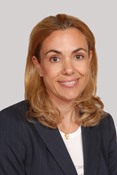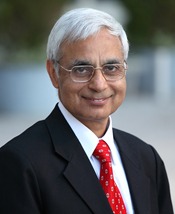Program Information
Advanced Training of Medical Physicists Beyond North America

E Lief
Y Pipman
V Tsapaki
J Damilakis
M Rehani
J Van Dyk
E Lief1*, Y Pipman2*, V Tsapaki3*, J Damilakis4*, M Rehani5*, J Van Dyk6*, (1) VA Medical Center, Pelham, NY, (2) Forest Hills, NY, (3) Konstantopoulio General Hospital, Nea Ionia, Athens, GR (4) University of Crete, Crete, (5) Massachusetts General Hospital, Boston, MA, (6) Western University , London, ON
Presentations
7:30 AM : Importance of continuous advanced training of Medical Physicsts worldwide - E Lief, Presenting Author7:50 AM : AAPM's endeavors to support advanced training of Medical Physicists in Low and Middle Income Countries - Y Pipman, Presenting Author
8:10 AM : EUTEMPE-NETWORK high level courses for training of medical physicists in Europe - V Tsapaki, Presenting Author
8:30 AM : Experience from a EUTEMPE-RX Module on dose management of pregnant patients, pregnant staff and pediatric patients in diagnostic and interventional radiology - J Damilakis, Presenting Author
8:50 AM : International resources and programs for medical physicists for training in radiation protection - M Rehani, Presenting Author
9:10 AM : International Medical Physics Education and Training Needs Over the Next 20 Years - J Van Dyk, Presenting Author
MO-AB-108-0 (Monday, July 31, 2017) 7:30 AM - 9:30 AM Room: 108
Increasing complexity of Diagnostic and Therapeutic radiological equipment makes it necessary to continuously train Medical Physicists even in the mature stages of their careers. Globalization of modern Medical Physics and prevalence of multi-national manufacturing companies makes this task truly international. This session is devoted to post-graduate training of Medical Physicists world-wide with the goal of international collaboration in this area.
AAPM, through the work of its volunteer members, has developed a vast range of programs and activities to support the education and training of Medical Physicists. Out of those, reports and guidelines on scientific, professional and clinical matters, can be used and adapted, to establish education and training programs in Low and Middle Income Countries (LMICs). The online resources, including a few thousand recorded lectures, as well as the proceedings of the annual meetings, summer schools, clinical and specialty meetings, are by-and-large available to LMICs at minimal or no cost. Many AAPM members volunteer and contribute as faculty in courses, meetings and workshops in many countries and regions. Some of those activities may be further bolstered by coordination and collaboration with other organizations to meet the critical demand for education and training in LMICs.
The EUTEMPE-NETWORK courses are dedicated specialist modules for Medical Physicists in Diagnostic and Interventional Radiology coordinated by world-renowned European experts. The content is structured based on the ‘European Guidelines on the Medical Physics Expert’ document (RP174). They consist of on-line and on-site parts that focus on case studies, design of project plans, troubleshooting practices, simulation studies, etc.
The University of Crete led a EUTEMPE-RX module on dose management of pregnant patients, pregnant staff and pediatric patients in diagnostic and interventional radiology. This module consisted of 2 phases: an e-learning and a face-to-face phase. The main objective was to discuss methods to estimate a) conceptus doses and radiogenic risks and b) pediatric doses and radiogenic risks associated with diagnostic and interventional X-ray procedures. Feedback from quality surveys was very positive. A sustainability plan has been worked out.
There has been great momentum in the last decade on radiation protection of patients and need for Medical Physicists to have greater focus on patient protection. Concurrently, the availability of educational resources has increased. The important resources are coming from IAEA, ICRP, NCRP and dedicated material - from AAPM, RSNA, Image Gently and Image Wisely programs. There are structured courses available, and they have been extended to clinical colleagues who do not work at major institutions.
Internationally, there is a general aging of the population, even in LMICs, with the result that there is in an increase in the incidence of diseases of older people such as cancer and heart conditions. The recent Lancet Oncology Commission report on expanding global access to radiotherapy (Lancet Oncology 16: 1153-1186; 2015) has shown that an additional 22,000 Medical Physicists will be required over the next 20 years in LMICs if equal access to radiation therapy is going to be available globally. These numbers do not include the additional imaging Medical Physicists that will also be required for the growing diagnostic needs. Many of the LMICs requiring new Medical Physicists have minimal medical physics education and training capabilities. Strong partnerships among multiple organizations will be required to support the provision of appropriate educational and training to generate qualified Medical Physicist in resource-challenged environments.
Learning Objectives:
1. To learn about advanced training of Medical Physicists worldwide.
2. To learn about AAPM resources available for education and training of Medical Physicists in LMICs.
3. To understand strengths, limits and opportunities of various AAPM international education programs.
4. To learn about the best centers for unique learning in diagnostic radiology physics in Europe.
5. To describe the advantages of combined e-learning and interactive programs.
6. To describe methods of achieving excellence in advanced medical physics training.
7. To analyze advantages of interactive sessions in medical physics education and training.
8. To learn about educational resources and training programs in the area of radiation protection of patients and medical staff radiation protection.
9. To understand how Medical Physicists can interact more efficiently with clinical colleagues using radiation protection as a tool.
10. To describe the growing need for education and training of Medical Physicists in low-to-middle income environments.
11. To demonstrate that multiple approaches and partnerships will be required to generate sufficient numbers of qualified Medical Physicists.
Funding Support, Disclosures, and Conflict of Interest: The EUTEMPE-RX Module 11 was funded by the Horizon 2020 - EURATOM program of the European Commission and the Greek Ministry of Education and Religious Affairs, General Secretariat for Research and Technology.
Handouts
- 127-35579-425554-126579.pdf (E Lief)
- 127-35580-425554-126822.pdf (Y Pipman)
- 127-35581-425554-127042.pdf (V Tsapaki)
- 127-35582-425554-126206-104208422.pdf (J Damilakis)
- 127-35583-425554-126859-2089795410.pdf (M Rehani)
- 127-35584-425554-127053.pdf (J Van Dyk)
Contact Email:





